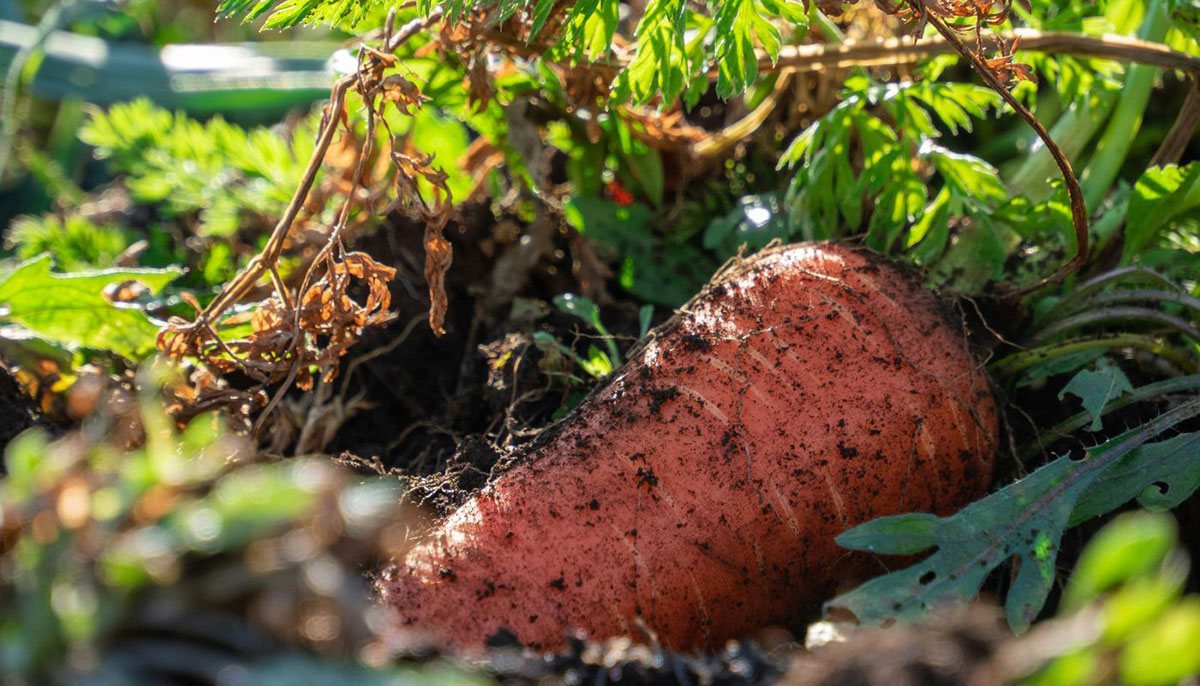
Challenge
Agriculture is highly vulnerable to climate change, as rising temperatures, erratic rainfall, and extreme weather reduce crop yields and force farmers to adapt their practices.
Solution
Organic farming enhances resilience by diversifying crops and avoiding chemicals. SHO Farm in Yokosuka demonstrates how sustainable methods can reduce vulnerability to climate-related stresses.
Overview
SHO Farm, located in Yokosuka, Kanagawa Prefecture, is a pesticide- and chemical-free farm producing about 100 varieties of vegetables and fruits in a natural environment. Founded in 2014, the farm embraces the philosophy of “agriculture that lasts for a thousand years,” using organic fertilisers and avoiding synthetic pesticides. It relies on native and fixed seeds to encourage self-fertilisation and maintain varieties suited to local conditions.
This case study illustrates how climate change affects natural farming methods like those practiced at SHO Farm, and the strategies the farm is adopting to adapt—showing how organic agriculture can remain productive and sustainable in a changing climate
Details
Unsustainable industrial agriculture is a significant driver of biodiversity and habitat loss, contributing substantially to climate change by contaminating soil and water, threatening rural livelihoods, and compromising food and nutrition security. The use of pesticides, chemical pollutants, and land conversion to intensive agriculture are primary causes of habitat destruction, with insect species at risk of extinction. Agriculture accounts for 11% of global greenhouse gas emissions, with methane from livestock and nitrous oxide from chemical inputs being significant contributors (World Resources Institute, 2024). Despite this, farmers, often among the world’s poorest and most food-insecure people, bear the brunt of environmental damage and the impacts of climate change.
The report “Climate Change 2022: Impacts, Adaptation and Vulnerability” published by the IPCC addresses the impacts of climate change on agriculture:
“Climate-related extremes have affected the productivity of agricultural, forestry and fishery sectors (high confidence). Droughts, floods, wildfires and marine heatwaves contribute to reduced food availability and increased food prices, threatening food security, nutrition and livelihoods of millions of people across regions (high confidence).”
The report also highlights the significance of agroecological farming, which emphasises sustainability and resilience, and the importance of farming practices in harmony with nature.
“Current adaptation in natural and managed ecosystems includes earlier planting and changes in crop varieties, soil improvement and water management for livestock and crops, aquaculture, restoration of coastal and hydrological processes, the introduction of heat- and drought-adapted genotypes into high-risk populations, increasing the size and connectivity of habitat patches, agroecological farming, agroforestry and managed relocations of high-risk species.”
Organic farming in Yokosuka
SHO Farm, located in Yokosuka, Kanagawa Prefecture, is experiencing the impacts of climate change, particularly rising temperatures during the summer months. As the climate becomes hotter, the traditionally thriving crops in the region are no longer as well-suited to the new environmental conditions. In response, SHO Farm has needed to adjust the types of vegetables they grow, selecting those that better adapt to the higher temperatures. This shift in crop selection is part of a broader strategy to ensure their farming practices remain viable and resilient in a changing climate. The rising summer temperatures challenge the farm to continuously reassess its agricultural methods to maintain healthy and productive crops.
However, one of the strengths of SHO Farm lies in its direct relationship with its customers. Unlike larger farms that rely on pre-packaged vegetable boxes, SHO Farm sells vegetables directly to customers, engaging in face-to-face interactions. By offering a variety of produce in flexible portions, the farm can adjust its crop planning and make necessary changes based on seasonal shifts, including rising temperatures. This direct connection to customers gives SHO Farm the flexibility to respond quickly to weather-related challenges, ensuring that they continue to meet demand while practising sustainable farming management.
Since its establishment in 2014, the farm has followed the philosophy of “agriculture that lasts for a thousand years,” aiming to create a sustainable farming system that not only withstands the impacts of climate change but also contributes positively to the environment. By using organic fertilisers, avoiding synthetic pesticides, and relying on native seeds to encourage self-fertilisation, SHO Farm has created a resilient farming model. This commitment to organic practices has allowed the farm to manage climate-related stresses better, supporting long-term sustainability while adapting to changing environmental conditions. Through these strategies, SHO Farm demonstrates how natural farming methods can be effectively adapted to mitigate the challenges posed by climate change.
Acknowledgements
We would like to thank SHO Farm for their cooperation and Kei Kurushima of the Institute for Global Environmental Strategies (IGES) for conducting the interview with SHO Farm on which this article is based.